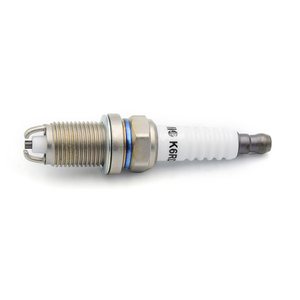Introduction to Replacing Car Spark Plugs
Replacing car spark plugs is an essential maintenance task for any vehicle owner. Spark plugs play a critical role in the ignition system, converting electrical energy into the heat and pressure needed to ignite the vehicle's fuel-air mixture. As these components wear over time, they can lead to engine performance issues, increased emissions, and reduced fuel efficiency. Understanding the importance of regular spark plug replacement can help extend your vehicle’s lifespan and enhance its overall performance.
Types of Spark Plugs and Their Relevance for Replacing Car Spark Plugs
There are several types of spark plugs available in the market, each designed for specific applications and performance needs. Familiarizing yourself with these types can aid in selecting the right replacement plugs for your vehicle.
- Standard Copper Spark Plugs: These are the most common and economical type. They provide reliable performance but have a shorter lifespan.
- Platinum Spark Plugs: Known for better longevity and efficiency, platinum plugs tend to offer improved performance but come at a higher cost.
- Iridium Spark Plugs: With a small diameter fine wire center electrode, iridium spark plugs deliver better ignition capabilities and enhance engine performance significantly.
- Multi-Electrode Spark Plugs: Offering increased reliability, these contain multiple electrodes, ensuring that a spark plug can continue to operate effectively even when one electrode wears down.
Function and Features of Replacing Car Spark Plugs
The function of spark plugs is straightforward yet critical. These components are responsible for igniting the air/fuel mixture in the combustion chamber, making them vital for engine operation. Below are some key functions and features that you should consider when replacing car spark plugs:
- Effective Ignition: A well-functioning spark plug ensures that the air-fuel mixture ignites efficiently, promoting smooth engine operation.
- Heat Management: Spark plugs dissipate heat to prevent overheating, thus protecting engine components from damage.
- Durability: High-quality spark plugs are designed to withstand extreme temperatures and pressures, extending their lifespan.
- Fuel Efficiency: Properly functioning spark plugs optimize fuel combustion, which translates to better mileage and lower emissions.
- Engine Performance: Regular replacement can lead to increased horsepower and improved throttle response, making your vehicle more enjoyable to drive.
How to Choose the Right Spark Plugs for Replacing Car Spark Plugs
Choosing the right spark plugs is crucial for achieving optimal engine performance. Here are some factors to consider when selecting the appropriate spark plugs for your vehicle:
- Consult the Owner’s Manual: Your vehicle's manual will specify the type and size of spark plugs needed, so it's essential to start there.
- Know Your Driving Conditions: If you drive in harsh conditions or use your vehicle for towing, consider using premium spark plugs with enhanced durability and performance.
- Consider the Engine Type: Different engines have varying requirements, so choose plugs compatible with either conventional gasoline or high-performance fuel.
- Brand Reputation: Opt for reputable brands that are known for quality and performance, ensuring that you receive effective replacements.
- Cost versus Value: While it may be tempting to go for cheaper options, investing in high-quality plugs can save you money in the long run by increasing efficiency and reducing the risk of engine issues.














































